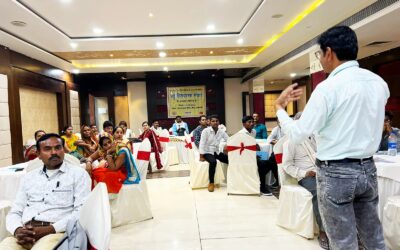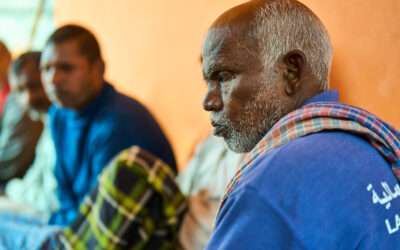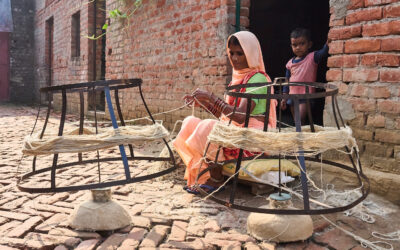Its arrival causes quite a stir.
It’s just a simple van.
But when it stops in remote hamlets, singers pop out, signs go up, and villagers learn that their lives can be better.
It’s called the “Anti-Slavery Chariot.”
It tours communities where slavery is rampant.
And it’s spreading the word that enslavement is illegal and people can escape it.
Organized by the FTS frontline partner organization MSEMVS, the chariot has been a runaway success.
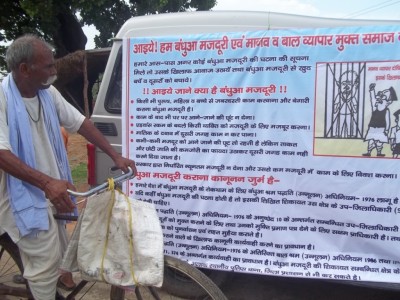
Villagers learn how they can escape slavery and turn the tables on traffickers
It has visited 49 villages to date, attracting more than 25,000 people to educational street theater performances and informational presentations.
The project has generated more than 500 follow-up phone calls by villagers seeking information and help.
More than 40 trafficking cases have been uncovered, with rescues now being planned.
One case has already led to freedom for 24 children enslaved in a biscuit-making factory. They were made to work night shifts to reduce the risk of being discovered.
They had been in slavery for eight months. Today they are free.
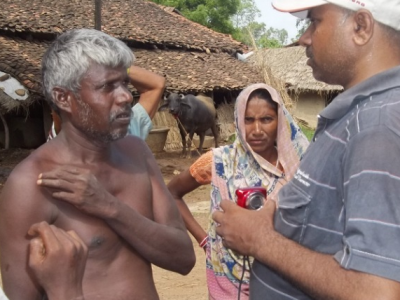
Chariot staffers discover information on slavery cases from local villagers
The chariot project began because many of the new leaders emerging in villages that have successfully battled slavery decided that they want to help other communities. Some of these leaders had personal experiences of slavery within their own families.
They asked MSEMVS to help them spread awareness in an organized way.
The chariot brings slavery into public view. The information it shares helps families understand what trafficking and slavery are, and how they can get help for victims.
As one participant explained: “We never knew about human trafficking and its forms, but this chariot helped us know that slavery is a crime.”
The chariot tour is just getting started. The organizers plan to reach 100,000 more people in heavy trafficking areas of northern India.
Editor’s note: learn more about our innovative projects in India on the FTS website.
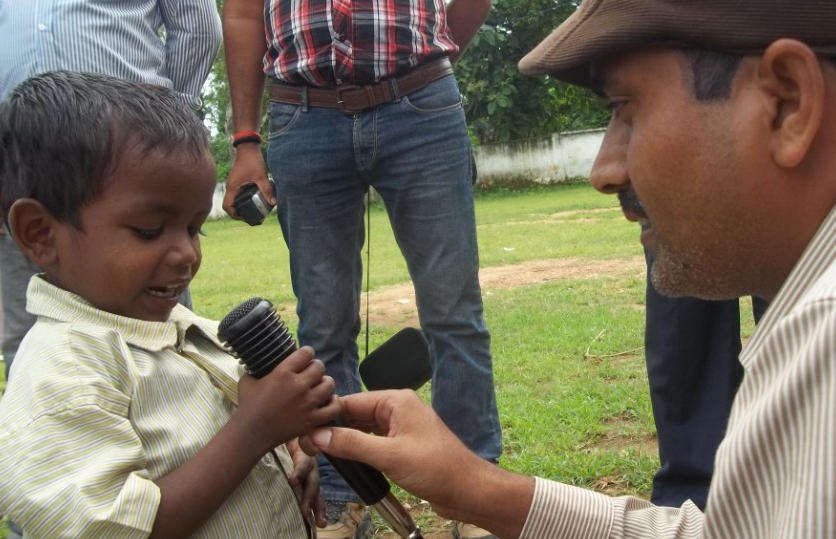
When it comes to conquering slavery, everyone’s voice should be heard

